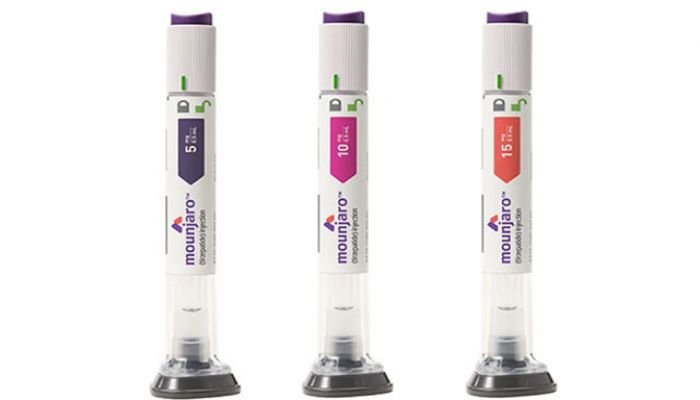
A new diabetes drug leads to more weight loss and lower blood sugar than its blockbuster rival semaglutide, also known as Ozempic, a review of research said on Saturday.
Tirzepatide, sold under the brand name Mounjaro by US pharmaceutical giant Eli Lilly, is currently approved to treat type 2 diabetes in the United States, Europe and most recently the UK.
However Eli Lilly is seeking to get the drug authorised in the US for obesity, which would put it further in competition with Danish firm Novo Nordisk’s semaglutide drug, known as Ozempic for diabetes treatment or Wegovy for weight loss.
After Ozempic went viral on social media earlier this year for its ability to help people lose weight, skyrocketing demand led to occasional supply shortages — and concerns that people without diabetes or obesity were using it to shed a few kilos.
New research, which is being presented at a conference in Germany and has not been peer-reviewed, suggests that Eli Lilly’s newer drug could be even more effective.
The Greek researchers combined data from 22 previous randomised control trials which separately looked at the two drugs, both of which are taken once a week as an injection.
The researchers then used the studies, which covered a total of nearly 18,500 patients with type 2 diabetes, to compare three different doses of both drugs over a period of at least 12 weeks.
Lead author Thomas Karagiannis of the Aristotle University of Thessaloniki told AFP that for the highest doses, “tirzepatide resulted in an average weight loss that was 5.7 kilograms (12.5 pounds) more than semaglutide”.
It also led to a two percent reduction in blood sugar levels compared to the highest dose of semaglutide.
“However, it is also notable that the highest tirzepatide dose was associated with increased gastrointestinal adverse events,” Karagiannis added.
– Give to those with ‘greatest need’ –
The research will be presented next month at the Annual Meeting of the European Association for the Study of Diabetes in Germany.
Duane Mellor, an expert in evidence-based medicine at the UK’s Aston University not involved in the research, cautioned that it was not a full peer-reviewed paper.
“It would have been better if it had analysed data from studies which directly compared the two drugs,” he told AFP.
Given previous shortages of these drugs, Mellor emphasised that it was essential that both are “given to those with the greatest need,” such as people living with type 2 diabetes.
A previous study found that the highest dose of tirzepatide leads to an average loss of 15 percent of body weight over 72 weeks. However, like Ozempic, the weight can come back if people stop taking the drug.
Both drugs mimic the gastrointestinal hormone GLP-1, activating receptors in the brain involved in appetite regulation.
But unlike semaglutide, tirzepatide also targets fellow hormone GIP, which stimulates the release of insulin.
Sales of Mounjaro nearly reached $1 billion in the second quarter of this year alone.
 Weekly Bangla Mirror | Bangla Mirror, Bangladeshi news in UK, bangla mirror news
Weekly Bangla Mirror | Bangla Mirror, Bangladeshi news in UK, bangla mirror news







